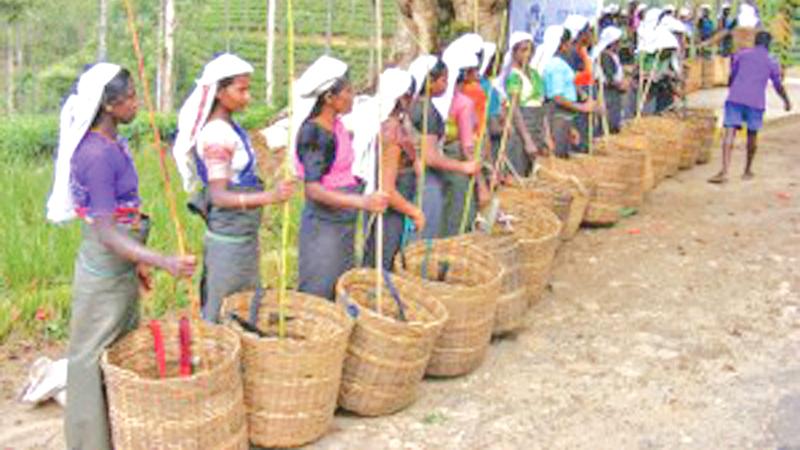
A pension provides you with financial security when you retire, as well as benefits for your family and loved ones thereafter. When the employee retires, she or he is paid in an annuity calculated by the terms of the pension.The EPF, ETF and the gratuity payments cover this need as a statutory need in Sri Lanka. The major portion of it in the private sector is contributed by the employer.
The pension scheme of the plantation employees discussed here is a means of social security and paid monthly to the retiree until death and to any dependent of the nominee of the retiree upon his or her death. EPS or employees’ provident schemes are popular in India.
EPF, ETF and Gratuity payments made to plantation employees are lump sum payments, and these payments made to the manual worker category end up in the hands of their caretakers (usually their children) on the promise that they will look after the retired (their parents) until death.
Sadly, how the promise is broken immediately after collecting the money from the parents is a public secret. These parents become invalid coins thereafter.
Gruesome
The darker side of their life begins then and the poor parents are left with the choice of working elsewhere as domestics or bear somewhat inhuman treatment from their own children.
Having toiled their entire life, which we consider as a true sacrifice, to support their offspring and the national economy at large being a notable foreign exchange earner, life after retirement of most of the manual grade employees become gruesome until they retire from life on earth. Some are praying for the last day to come early which is widely known among the community.
Financial constraints after retirement are somewhat common to the rest of the categories of employees such as the Executives and the staff as well. Having to maintain two houses such as the residential quarters provided by the Plantation and either rented out or own houses to educate children gobbles a major portion of the salary hence poor savings during employment.
Out migration has become a grave issue with the devaluation of the rupee. The house maids are now earning more than Rs.100,000 per month. This must be compared with an average manual worker in the Plantations earning about Rs. 30-40 thousand per month. The monthly earnings are fluctuating due to political and environmental factors.
Out migration or brain drain of the scientists serving the crop research institutes is another issue heavily affecting the crop performances of the plantations industry. The situation is common to the employees in the Ministry and the employees in connected organisations assisting the small holder sectors of the Plantation crops.
Forex earner
Plantationsemployees’voluntary pension scheme needs wider support and recognition by all who are interested in the survival and the sustainable growth of this important forex earner to the national economy.
Some of the Regional Plantation Companies have addressed this issue by establishing retirement housing schemes with common facilities provided to manual grade employees and maintained by the company.
The Plantations Human Development Trust (PHDT) has understood the dire need and has obtained the approval of the Planters Association and the Ministry of Plantation Industries to initiate discussions with the Social Security Board of Sri Lanka to commence the scheme from this month. The LalanAgri Division of Lalan Rubbers (Pvt) Ltd has coordinated the gigantic initiative.
The Social Security Board (SOSEBO) was set up by Act No. 17 of 1996 dated 26th July 1996 and had been amended by Act No. 33 of 1999.
SOSEBO has been empowered by the Act to establish pension and Social Security schemes for those who are engaged in, self-employment, informal sector, and other non-pensionable sectors.
Social security
The aim of the SOSEBO is to ensure social security for a dignified nation. The SOSEBO is entrusted with the task of formulating, executing, and regulating provisions and policies aligned to practices of good governance to ensure Social Security of Sri Lankan citizens strengthening the economy and protecting cultural values, incorporating strategic alliance with government and nongovernmental organisations towards sustainable development for a dignified nation.
The PHDT is a tripartite organisation consisting of the Government, Regional Plantation Companies (RPCs) and Plantation Trade Unions (TU) formed by the Government to implement social development programs to enhance the quality of life of the one million plantation community in the estates managed by the RPCs.
We the Ceylon Planters Society committed to secure and promote the professional and personal interests of planters, while endeavouring to cooperate in the sustainable growth of the plantations industry, welcome the initiative of plantation employees’ pension scheme which is a correct intervention in the right direction.
The writer is the Secretary General of the Ceylon Planters’ Society and a former senior planter and agricultural adviser and consultant.
